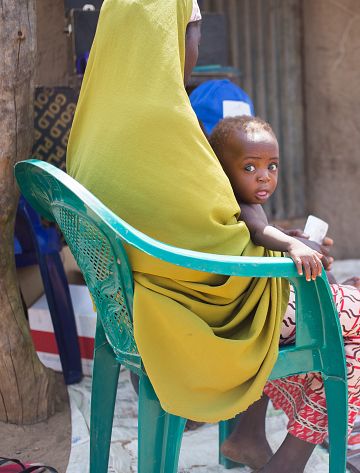The stark reality and broken promises behind cuts to Overseas Development Assistance
25 November 2020
Today’s announcement by the UK Government to reduce the proportion of Gross National Income spent on overseas aid from 0.7 percent to 0.5 percent will reverse huge gains made in recent years towards meeting global health goals. Reducing the UK government’s aid commitment to 0.5 percent, equivalent to a £4.34 billion reduction[1], will have a profoundly damaging impact on vulnerable populations in Low- and Middle-Income Countries (LMICs) globally.
No region has escaped the impact of the COVID-19 pandemic – but immense additional strain has been placed on malaria endemic countries with fragile health systems, where there are already inadequate preventative measures and access to live saving treatments.
Malaria Consortium, and organisations like ours, use funding from the UK Government and other donors to implement interventions aimed at improving health outcomes in LMIC countries and supporting these countries to increase the resilience of their health systems. Our key focus is to design and deliver interventions to reduce the burden of malaria and other communicable diseases. Doing this well, as the pandemic has shown, requires collaboration, developing better tools and technology, understanding changes in both human and vector behaviour and committed partnerships and investment. Evidence shows that where investment ends and sustainable funding, strategies and infrastructure are not in place, preventable deaths increase, as does risk to global health security.
While it may seem ‘hard to justify to the British Public’, the decision to withdraw significant UK funding will undoubtedly have an immediate impact on many countries, forcing some interventions to end prematurely, walking away from promises made to communities in highly vulnerable circumstances. This will mean that efforts to strengthen health systems, some in their infancy, will be badly disrupted and the fragile gains achieved profoundly damaged. This, at a time when we know that the projected data for mortality and morbidity from malaria and other communicable diseases is getting worse, not improving:
- A Lancet study modelled that by the end of 2020 there could be up to 768,600 malaria deaths in Africa due to the disruption caused by COVID-19, potentially reversing two decades of progress against malaria.
- Dengue has been rapidly spreading in recent years, with cases rising from 2.4 million in 2010 to 4.2 million in 2020 - there is every indication that this will continue to rise, potentially constituting another global health emergency that will need additional, not reduced international support to combat.
- Pneumonia kills more children than any other disease, accounting for approximately 16 percent of global child deaths each year - another infectious disease that requires vital international collaboration in research, treatment and funding to tackle.
But it’s not only the direct impact these cuts will have on people’s health through the loss of services, surveillance and research that will bite. These cuts will affect nonprofits across the board, resulting in multifold loss of services and structures that currently support income and livelihoods. In the middle of the COVID-19 pandemic, vulnerable communities are already at the sharp end of the consequences of this global health crisis.
- The World bank estimates that up to 150 million people will be pushed into extreme poverty by 2021 - the first time that the percentage of people in this bracket has risen for two decades.
- According the International Labor Organization, Food and Agriculture Organization, International Fund for Agricultural Development and the World Health Organization, in excess of 1.5 billion people – the majority of whom work in the informal economy in LMICs - are at risk of losing their livelihoods, along with access to adequate nutrition and quality health care.
- The Global Fund has stated that $5 billion is urgently needed to protect front-line health workers, reinforce systems for health so they don’t collapse and are then unable to roll out treatments and vaccines once available.
The UK Government has met 0.7 percent consistently since 2013, doing so even through a prolonged period of economic austerity and helping to set an example to other nations. In 2015, 0.7 percent was enshrined into law with the passing of the International Development (Official Development Assistance Target) Act - a legal obligation that was reaffirmed in the government’s 2019 manifesto. Sadly, but realistically, backing away from this policy now, even temporarily, will contribute to the stalling, and potential regression, of years of work on poverty reduction, health improvement and opportunity creation.
[1] 15.197x(0.2/0.7) Extrapolated from 2019 figures - https://assets.publishing.service.gov.uk/government/uploads/system/uploads/attachment_data/file/927135/Statistics_on_International_Development_Final_UK_Aid_Spend_2019.pdf
Latest news
- Malaria Consortium honoured by Ugandan government for contribution to combat malaria23rd April 2024
- International summit calls for AMR accountability in public health interventions21st March 2024
- Global SMC community celebrates new milestone at SMC Alliance Annual Meeting in Nigeria6th March 2024
- Scaling up key interventions could halve pneumonia-related childhood mortality13th February 2024
- Malaria Consortium and eGov Foundation join Mozambique’s national malaria programme to digitalise seasonal malaria chemoprevention campaigns8th February 2024
- World’s first malaria vaccine rollout launched in Cameroon22nd January 2024